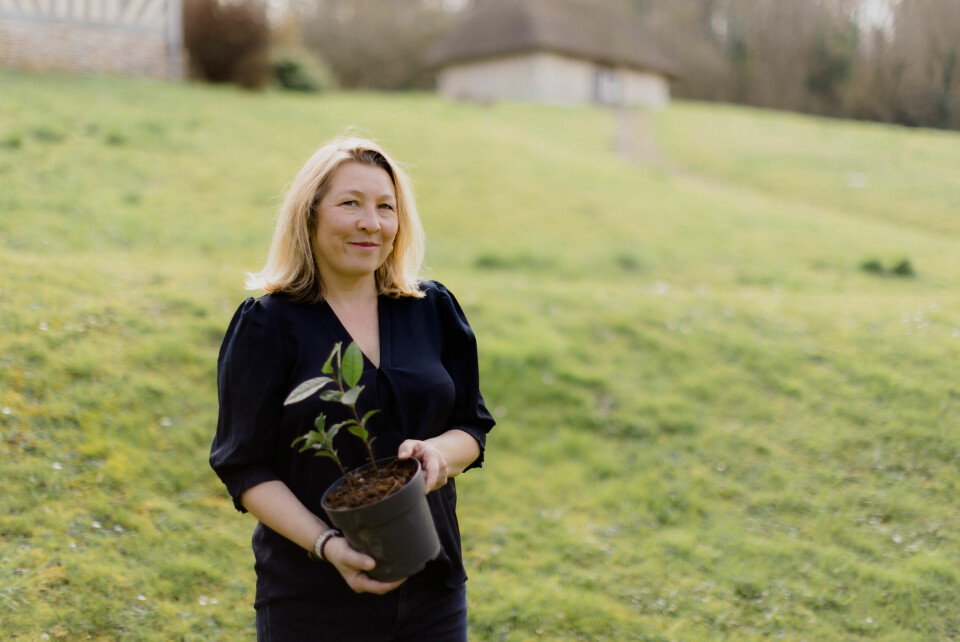-
How France’s new food strategy aims to change the national diet
The plan outlines new goals for meat consumption
-
Why supermarkets are urging shoppers to buy French leeks
Try our French classic leek vinaigrette recipe
-
Best value 2026 Michelin French restaurants: Are there any near you?
Four regions did especially well on this year’s Bib Gourmand restaurant list
Career change: From IT to a tea-grower with Normandy plantation
The traditional question of “India or China?” at tea time might soon be tweaked to “India, China or Calvados”?

The traditional question of “India or China?” at tea time might soon be tweaked to “India, China or Calvados” as a former, high-flying IT specialist’s tea plantation in Normandy takes off.
Gaëlle Rousseau was in charge of digital innovation in the finance ministry when Covid hit, and escaped Paris to sit out lockdown in her second home near Deauville.
“It was here that I decided I did not want to go back to my life in Paris, and would rather do something with my hands, outside, and in line with ecological practice,” she told The Connexion.
“I love tea, and was surprised to read that it is a form of camellia.
“I realised I had a camellia in my garden and it was doing well. From there the idea grew that I could plant a tea plantation here and develop it.”
Many people are surprised that you can grow tea in Europe, but the plant, grown at altitude in the tropics to avoid heat, can thrive anywhere with an acid soil, lots of moisture and not-too-cold winters.
In Britain there are commercial plantations in Cornwall and in Scotland, and in France in the Pyrenees, Brittany and now Calvados.
Read more:Did you know? France has a longer history of tea drinking than the UK
Ms Rousseau used money in her compulsory training fund to do a diploma in cultivating aromatic plants at a lycée agricole, and bought 300 tea bush seeds from the plantation in Brittany. She germinated 80%, and started growing them in pots.
“I was getting experience by Woofing [where people volunteer on farms in return for board and lodging] and worked on an eco-domain near me, set up by public authorities,” she said.
“I asked if there was any space and that is how I got some land, which was a lucky break because around Deauville, with all the horse racing stables, land is very expensive.”
The 3,000m² she now cultivates has 1,000 tea plants grown organically, most of which will reach full maturity in five years or so.
Ms Rousseau has harvested from some older plants she bought in, but is keeping the tea, which she cures as green tea using both Chinese and Japanese methods, for visitors to her business. In the meantime she is working as an adviser on aromatic herbs, promoting tea, and trying to get large companies to include tea bushes in their landscaping.
“It is a pretty plant, green all year round, with white flowers in winter, and the idea is that I plant the tea, and then once or twice a year go around and give staff a demonstration of how to turn the leaves into a drink.”
Her business, called Jardins de thé, won a green start-up award from Normandy’s Chambre d’agriculture.
Ms Rousseau hopes people will start growing tea all over France.
“The idea of having food grown locally on short circuits has become very important, and this is one way of implementing it,” she said.
“The French do not drink as much tea as the British but each year more people are trying it, even if they are only using teabags.”
Her love of tea came when she studied in England for four years: “I quickly realised that no work gets done in England without it,” she said.
When full commercial production starts, she expects her tea will be priced similarly to other European brands, as a luxury tea, commanding at least €1,000 a kilo for ready-to-drink leaves.
Read more:Winter flowers: The ‘extraordinary’ history of France’s camellias
She has already been contacted by specialist shops, but production is currently too small for their needs. When it picks up she plans to sell locally to tea rooms and restaurants first, and possibly over the internet.
Another project she is working on with a Brittany producer is to develop a robot to pick leaves with the delicacy needed for quality tea. Commercial tea plantations in Asia use a lot of cheap labour to pick the best leaves, and employment costs in France are a limiting factor. They have been awarded a development grant to work towards a prototype machine.
Ms Rousseau is under no illusions about Europe rivalling Asian countries in terms of tea production.
“In Asia there are centuries of know-how in making really special teas.
“Our tea is good, it is refreshing and it is organic, but it has a very long way to go before it can be compared to Asian teas,” she said.
“But it is possible for people to grow it in their gardens and to drink tea they have produced themselves, and I hope that in 10 years there will be tea plants all over France!”
Related stories:
We found our extended family volunteering in France, says UK-US couple
Career change in France: Paris attack made me reflect on what I wanted
Career change: UK charity CEO close to burnout found balance in France
























